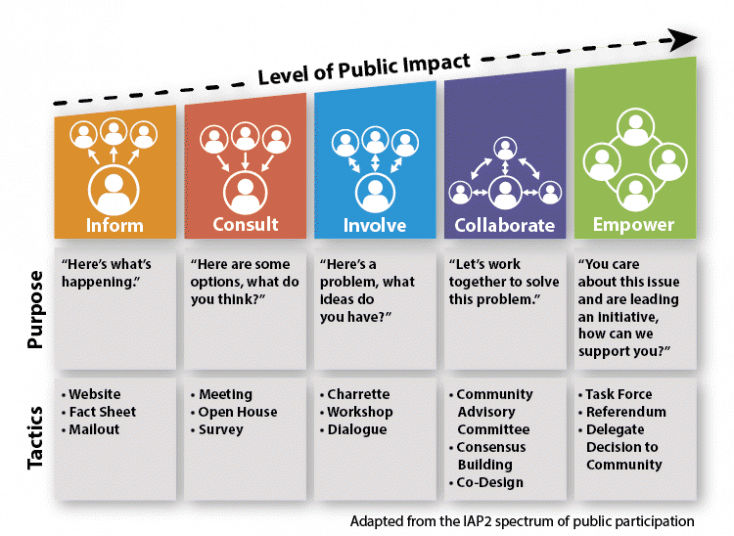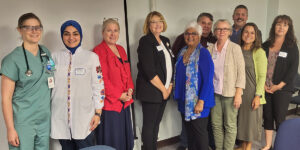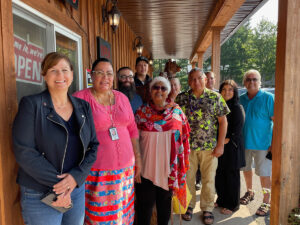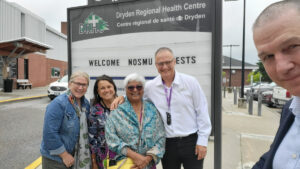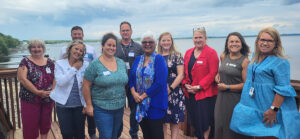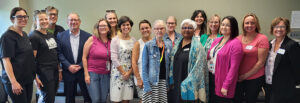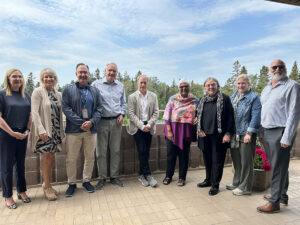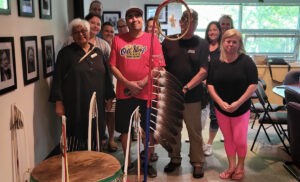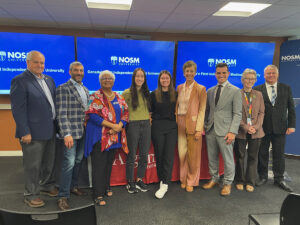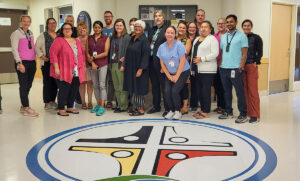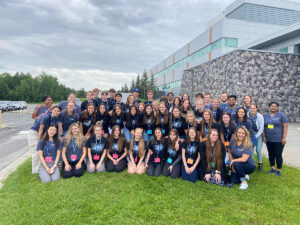This has been an awesome summer! I spent all of it in Northern Ontario, reveling in the sunshine, water and community activities as people emerged from the pandemic and from the heaviness of winter. Like a butterfly from its cocoon, we have all come through some of the most difficult times of our generation yet, we have emerged with a new purpose and new sense of being.
At NOSM University, we have revisited the important work of strengthening partnerships and relationships. In early July, I had the pleasure of meeting the new President and Vice Chancellor of Lakehead University, Dr. Gillian Siddall. Dr. Siddall is returning to Lakehead University after being President at Emily Carr University since 2018. She brings a wealth of knowledge and innovation to this role. Our discussions were fruitful, and I am optimistic about the future of our ongoing partnership and collaborations with Lakehead University.
In that same spirit of collaboration, I met with Thunder Bay Mayor Ken Boshcoff, MPP Lise Vaugeois and many members of the University’s clinical faculty at the Thunder Bay Regional Health Sciences Centre (TBRSHC) to reinforce NOSM U’s commitment to those communities. Dr. Sarah Newbery, Associate Dean, Physician Workforce Strategy, met with Karima Velji, Assistant Deputy Minister for Ministry of Health. Mr. Ray Hunt, Vice-President, Administration and Chief Operating Officer, and I met with the new Deputy Minister of the Ministry of Colleges and Universities, Mr. David Wai, as well. These ongoing meetings and important discussions are part our government relations strategy to ensure there is support and advocacy for our work.
I was honoured to give a virtual presentation at the National Academies of Sciences, Engineering, and Medicine in Washington, DC titled “Building the Workforce for Implementing High Quality Primary Care: A Pre-Condition for Progress” on the topic of social accountability and medical education.
Representing 30 per cent of the Northern Ontario population, the impact NOSM University has made in Sudbury and Thunder Bay is significant. Despite this urban success, there continues to be a crisis in the numbers of doctors and other health-care practitioners in Northern Ontario’s smaller rural, remote, Indigenous and Francophone communities. The health-care needs of the Northern population are complex, having the most vulnerable, unhealthy populations of any geography in Ontario.
We have the highest rates in the province for addictions, mental health, cardiac disease, cancer, and diabetes. We also have an aging population and a life expectancy that is, on average, two years lower than the rest of the province. And, a high number of far north and remote First Nations communities who face food insecurity, longstanding boil water advisories, and high rates of chronic diseases.
When the idea of social accountability is discussed at NOSM University—as it frequently is—other concepts enter the discussion: social justice, social responsibility and social responsiveness. If we consider these concepts in the context of a medical school:
- Social justice refers to the fair distribution and equal opportunity to the services that the medical school provides.
- Social responsibility is an awareness of the medical school’s duty to society.
- Social responsiveness is the medical school’s action of responding to society’s needs.
- Social accountability would add anticipation of society’s needs, addressing them and allowing society to verify that the distribution of the services the medical school provides afforded everyone equitable opportunity to them.
In the context of NOSM University, our education programs must be equitably accessible and graduates from the University are helping to transform the health-care system with a focus on equitable and accessible care. Thanks to the leadership of Drs. Alex Anawati—who coined much of this discourse—Erin Cameron and Joseph LeBlanc, as well as the entire team of the Centre for Social Accountability, NOSM University is the beacon of this work in social accountability and advocacy for health equity.
 A key aspect of social accountability is stakeholder and community engagement. On the pentagram of social accountability (Boelen et al, 2000) academic institutions are only one player and the most important stakeholder is the local community.[1]
A key aspect of social accountability is stakeholder and community engagement. On the pentagram of social accountability (Boelen et al, 2000) academic institutions are only one player and the most important stakeholder is the local community.[1]
At NOSM University, we engage in learning, teaching and research in more than 90 communities across Northern Ontario.
In the past four years as the Dean—and now as President—I have made it a mission to get out there and visit as many communities as possible. This is no small feat. It is a logistical and energy consuming affair involving a talented team of workers who manage many details, drive me from town to town, and give up their own summers to make sure we connect with as many learners, staff, faculty and partners in various communities. Sadly, we were not able to get everywhere as the geography of Northern Ontario is vast and often hard to access –this was exactly what we experienced during our trip to Wawa. Highway 17 was closed in both directions near Wawa due to an accident, when we returned to Thunder Bay and resumed our tour by flying to Sault Ste. Marie to announce a special collaboration with Algoma University to address mental health and addictions challenges. This collaboration sets the stage to expand research and training initiatives.
If I could impart a lesson to anyone aspiring to take on a job like mine, it would be to go out and experience what our medical and health sciences students, residents, teachers and community partners are doing. Only then will you begin to understand how dependent we are on them for the delivery of our academic mission. A key principle of “community engagement” is the intentional interaction between stakeholders and leadership. Without that element, there is little substance.
On the spectrum of community engagement are the following steps:
Source: PlanH website
NOSM University has been doing Steps 1 and 2—inform and consult—well, and one could argue Step 3—involve—adequately. But, NOSM University has not yet sufficiently made its way into Steps 4 and 5—collaborate and empower. As we evolve as a medical university, it will be imperative to get beyond Step 3. This summer, from July 17 –26, was the start of that.
In the northwest, we spent time in Atikokan, Fort Frances, Kenora, Dryden, and Sioux Lookout. Though our plans to visit Wawa changed as I mentioned, we were able to engage by videoconference with community leaders from Wawa, White River, Hornepayne, Dubreuilville, and Chapleau. The last leg of the trip took us to Sault Ste. Marie, Garden River First Nation and Batchewana First Nation.
It has been whirlwind but a true northern adventure.
Photos courtesy of Dr. Peter Istvan, Dr. Gillian Siddall and Kimberley Larkin.
Thanks to Vin Auld, Jacalyn Cop-Rasmussen, Joanne Musico, Kimberley Larkin, Dr. Peter Istvan, Dr. Céline Larivière and Chantale Dean for helping me with this leg of the tour. I look forward to resuming my tour to communities in the northeast this September.
Miigwetch, thank you, marsi, merci,
Dr. Sarita Verma
President, Vice Chancellor, Dean and CEO
NOSM University
If you have any feedback or comments, please reach out at president@nosm.ca and follow me on Twitter @ddsv3.
[1] Boelen C. World Health Organization, Towards Unity for Health, Challenges and Opportunities for Partnership in Health Development, 2000.
SRPC Indigenous Health Challenge
The SRPC Indigenous Health Student Committee invites all members to join the Five Month Indigenous Health Challenge! This self-guided learning initiative will revolve around Indigenous Health in Canada. The idea is simple: we’ll be sending out emails and activities related to Indigenous Health, and we encourage you to explore and engage with them at your own pace.
August Challenge: You’re on Indigenous Land
This month’s challenge focuses on territory awareness and highlights the importance of knowing and respecting whose land you’re on. Head to www.native-land.ca and search for your hometown, a place you’ve lived or currently live, or look up your previous or current workplace and search for the following:
- The nations/communities who inhabit the territory
- The language(s) spoken there
- The treaty/treaties signed there (if any)
Once you’re done your research, submit your answers here.
Executive Group and Cabinet Retreats
We had highly successful retreats—one virtual and the other in person—in July. The Executive Group discussed “Planning the next Strategic Plan” with the following objectives:
- An Academic Plan with a focus on expansion of NOSM University’s medical programs. This plan will identify the proposed roll out of the MD, residency and Physician Assistant program expansion; challenges with clinical capacity; changes to curriculum with a focus on digital learning; Equity, Diversity, and Inclusion; planetary health; criteria for new programs and degrees; establish timelines for quality assurance and improvement; and accreditation.
- A refresh of the Research Plan and update on research directions, with a timeline to attain status to independently administer research grants; establishing global health and international partnerships; identifying new graduate programs; and collaborations with other Universities in Canada.
- An overview of clinical relations and hospital partnerships to support the above objectives, with key projects for the evolution of Northern Ontario Academic Medicine Association (NOAMA); increasing the Alternate Funding Plan (AFP); and the advancement of NOSM University within the two Academic Health Sciences Centres—Health Sciences North in Sudbury and the Thunder Bay Regional Health Sciences Centre. The group also focused on addressing the ongoing process challenges of dealing with learner mistreatment.
- Administrative frameworks to help NOSM University make plans for space through capital planning; exploring additional capacity in Sault Ste. Marie; and outlining a process for a new budget model.
The Cabinet Group had the opportunity to dig deeper into the time frame for the next Plan.
Congratulations to the NODIP Graduates
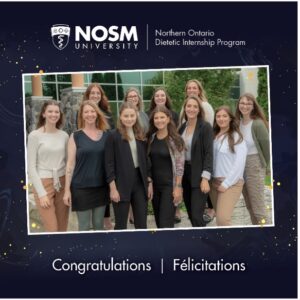 Congratulations to 11 new graduates of the Northern Ontario Dietetic Internship Program! We are so proud of you, and we know that you will make a difference as you begin your careers as Registered Dietitians. This marks the 16th class of NODIP, which is a collaboration with multiple preceptors, communities, and facilities across Northern Ontario.
Congratulations to 11 new graduates of the Northern Ontario Dietetic Internship Program! We are so proud of you, and we know that you will make a difference as you begin your careers as Registered Dietitians. This marks the 16th class of NODIP, which is a collaboration with multiple preceptors, communities, and facilities across Northern Ontario.
Including this year’s class, NOSM University has graduated 197 Registered Dietitians. Notably, 100% of the 2022 graduates are practising in Northern Ontario. Congratulations to our newest NODIP grads, and to the entire NODIP team for the exceptional work they do to make it one of the best programs in Canada.
CampMed
This year CampMed was held in person in Sudbury July 10 – 14 and in Thunder Bay July 17 – 21.
Between the two sites, there were:
- 60 campers
- 8 self-identified Indigenous
- 28 self-identified Francophone
- 17 communities represented
- 20 volunteers
- 5 self-identified Indigenous
- 10 self-identified Francophone
- 10 NOSM Med Students
- 39 presenters
Workshops highlights included: Suturing 101, Casting, Taping, Vascular Surgery, Physiotherapy, Clinical Skills Rounds, Genetics, Crime Scene Investigation, Trauma Care in the Rural Emergency Clinical Skills, CPR, Psychiatry, Dietetics, Physiotherapy, Occupational Therapy and Allied Health Professionals Career Panels.
CampMed also offers Indigenous teachings, including: Shaker Making, Jigging, Beading, Indigenous Food Circle: Food is Life, and Medicine is Life.
With the help of a generous donation from the Kenny Foundation to support some of the program, NOSM University was also able to provide:
- 9 registration scholarships
- 3 travel scholarships
- 4 accommodations scholarships
Photos courtesy of Katie Biasiol and Lindsay Lemieux.
Summer Camp Hosted in Fort Albany
Camp Explore-it was developed by Caleigh Bourdon, a NOSM University medical student. Caleigh worked with the Indigenous Affairs team at NOSM University and the Mushkegowuk Council to host 63 Indigenous youth in Fort Albany for a week-long summer science day camp. The camp features a number of educational activities designed to engage the campers in active learning, while also having fun. Each day is organized into different themes, which encourages campers to explore different types of sciences, namely astronomy, human biology and ecology. The final day is a BBQ held for campers and their families.
The youth of the community attend the camp free of charge and the materials are donated to the community. Camp Explore-it was first launched in 2018 in Fort Albany and returned to the community in 2019, though was put on hold during the pandemic. This year’s camp was well received and supported by the community, and it provides a great opportunity for current or prospective NOSM University students to build relationships with remote Indigenous communities. If you are interested in participating as a camp counsellor in the future or would like to make a donation to support Camp Explore-it, please reach out to Caleigh Bourdon at cabourdon@nosm.ca.
Camp Explore-it counsellors include:
- Caleigh Bourdon, third-year medical student and camp developer/coordinator
- Julie Leroux, third-year medical student
- Ashley Gillies, second-year medical student
- Laurel Schmanda, second-year medical student
- Mallory Turcotte, prospective medical student
- Kelsie Iserhoff, prospective medical student from Moose Factory with ties to Fort Albany
Camp Explore-it is grateful for the continued support and warm welcome by the community of Fort Albany and for their continued partnership with the Mushkegowuk Council and NOSM University’s Indigenous Affairs team.


